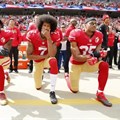There's a lot of emphasis on personal brand these days, which is not surprising given the power of social media networking. More specifically, whereas personal brand has always been important, personal branding is enhanced by connectivity.
This distinction is important because branding yourself is intentional: you can leverage connectivity to increase your profile, but you have a personal brand whether or not you are intentional about it.
Get personal
A personal brand is a perception that others have of you before you engage with them and the image that you leave in their minds afterwards. It’s what others ascribe to you before and after engagement. As Jeff Bezos, CEO of Amazon, said: “Your personal brand is what people say about you when you are not in the room.”
And when you think about it like that, personal brand should be as intentional as personal branding – even if you don’t intentionally promote yourself, whether with social media or old faithful like PR or public speaking, others will be doing it for you and they are also empowered by connectivity.
Karabo Keepile,
Rosebank College 27 May 2019 Whether you are intentional or unintentional about how you show up, you have a personal brand and should not underestimate the value of it. Remember, this value is not restricted to your personal brand; it also accrues to the organisational brand of the enterprise that you work for.
Great brands are built from the inside out by the people who live that brand – an accumulation, if you like, of the personal brands of everyone working for that brand.
It includes everyone from the managing director talking to journalists to the financial director talking to asset managers to the teller serving a customer at check-out to the disgruntled employee tweeting.
Get real
In the same way that great brands need to be authentic if they are to build trust, personal brands have to be authentic. A personal brand is not a façade to maintain.
Donna Rachelson emphasises this in her book Personal branding for entrepreneurs, where she recognises that wanting to be liked is a natural human desire: “We want everyone to like us even though we understand that’s impossible.”
The point she is making is that you can’t be everything to everyone.
This is as true about an organisational or product brand as it is for a personal brand. Any brand that tries to appeal to everyone is running the risk of having a mediocre appeal.
As Seth Godin shares in his book This is Marketing, it is sensible to target the smallest viable market and build from there. Start by appealing to people who think like you – as he puts it: “People like us do things like this.”
Godin concludes that culture beats strategy – that the organisation’s culture is what will differentiate and build the brand. The culture of the organisation is the sum of the personal brands of the people who work in that organisation.
Yvon Chouinard, founder of Patagonia (the brand, not the place!), records in his wonderful book, Let my people go surfing, how they struggled to nail down their values and mission during their first board meeting.
Over lunch one of the board members, author and ecologist Jerry Mander, skipped lunch and presented what became the foundation of the company’s values.
His presentation started like this: “We begin with the premise that all life on Earth is facing a critical time, during which survivability will be the issue that increasingly dominates public concern.
Where survivability is not the issue, the quality of human experience of life may be as well as the decline in the health of the natural world as reflected in the loss of biodiversity, cultural diversity and the planet’s life support systems.”
Patagonia’s culture has built-in appeal to people who love the outdoors and are concerned for its health, the kind of people who need the outdoor equipment that Patagonia provides to get out there. And it is absolutely authentic because it is a reflection of the people who live the brand.
Get going That’s why personal brands are an essential part of distilling organisational brands – they support authenticity; they make the personality and character of the brand real.
Think of Nike, one of the world’s favourite brands, built by brand advocates like Serena Williams, obviously because she is a champion in her sport, but especially because of her tenacious attitude.
Keith Rathbone 6 Sep 2018 While her attitude clearly drives her competitiveness in tennis, it goes way beyond that as expressed in this quotation of hers: “The day I stop fighting for equality and for people that look like you and me will be the day I'm in my grave.”
Those responsible for leading organisations need to think very seriously about their personal brand and ask themselves if it is adding value – purposefully – to the value of the organisational brand that they represent.
They must recognise that whether or not they are intentional about branding themselves, their personal brand will impact on their organisational brand, either positively or negatively.
The most direct impact will be on the culture of the organisation that they lead, because if they are not coaching the behaviours (do things like this), they will not attract and retain the right people (people like us) either as employees or, ultimately, as clients or customers.




















































